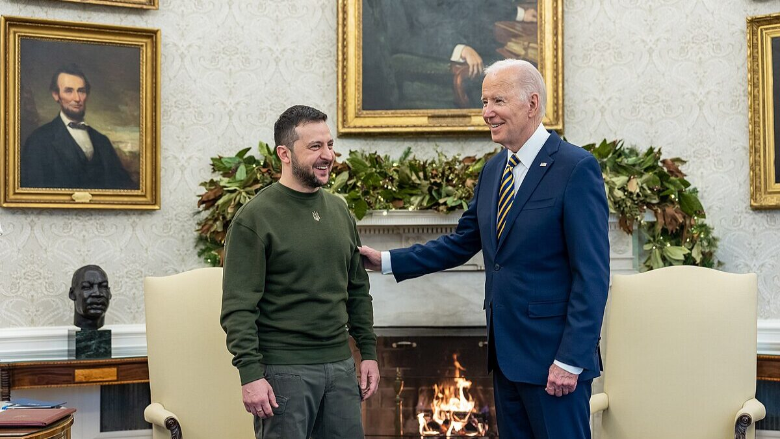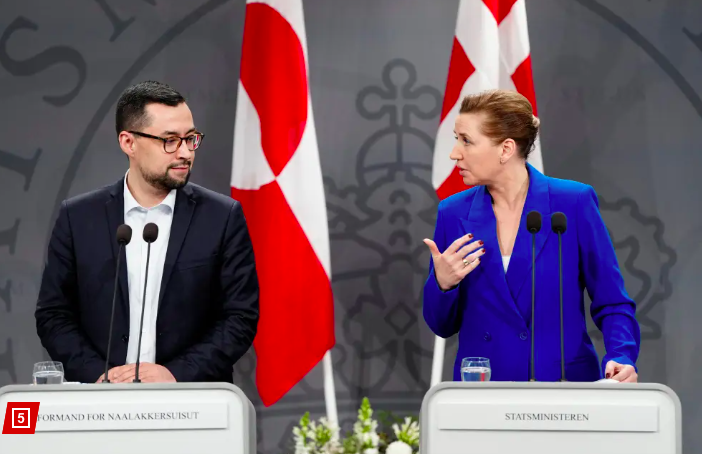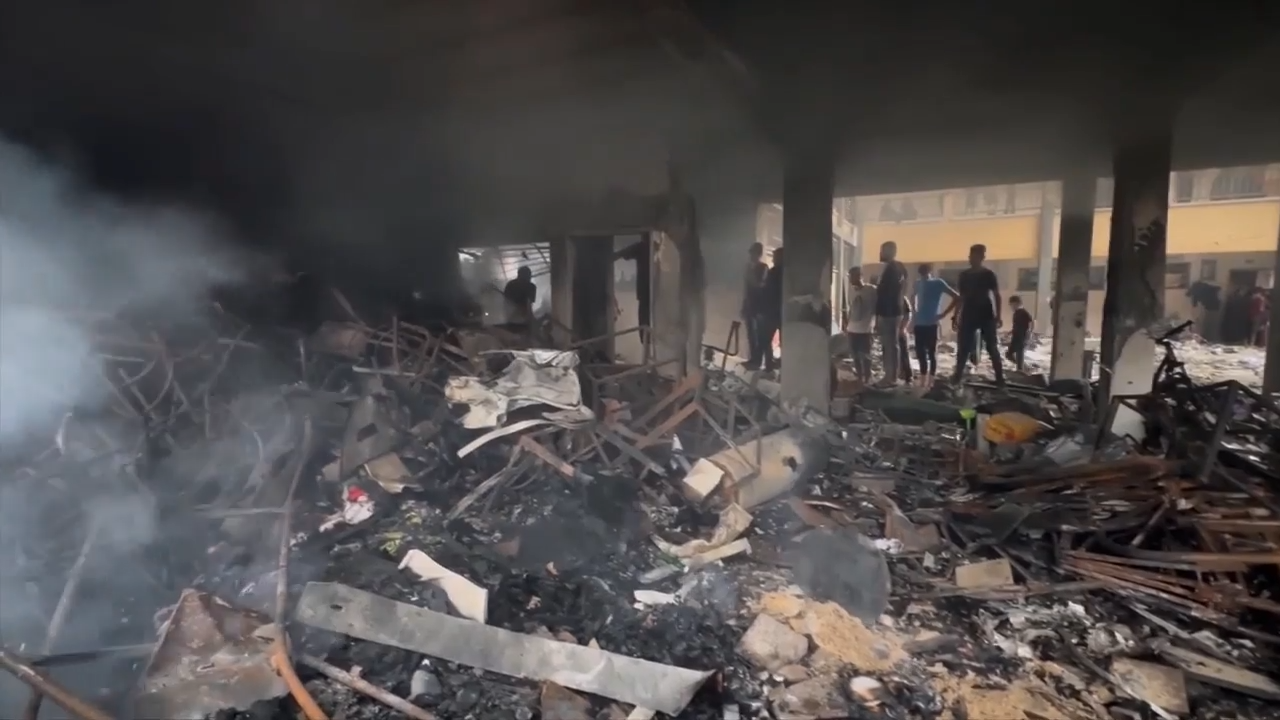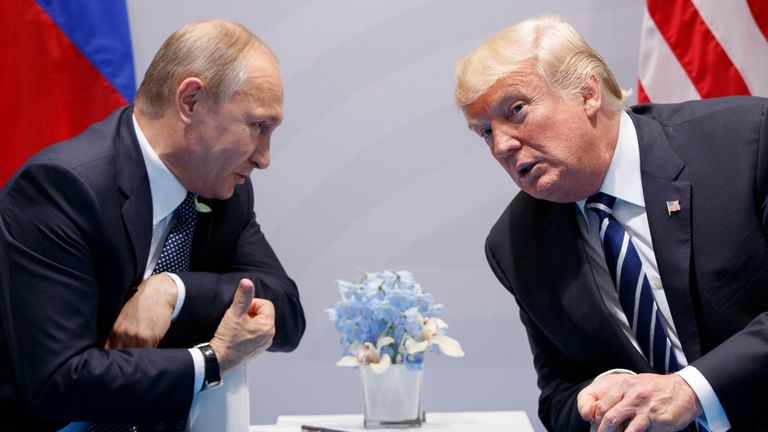The Biden administration is reportedly weighing unprecedented measures to support Ukraine amid its ongoing conflict with Russia. According to a report by The New York Times, one controversial option under discussion includes supplying Ukraine with nuclear weapons, a move that could dramatically escalate tensions in the region.
This possibility arises as the administration works to bolster Ukraine’s defenses before the transition of power in Washington on January 20, when President-elect Donald Trump is scheduled to take office. With time running out, U.S. and European officials are exploring strategies to deter further Russian aggression, including significantly expanding Ukraine’s conventional and strategic arsenal.
New Podcast! Trump’s Nominees Rock DC – ET Talk
#bill_of_rights #christian_podcasts #communism_vs_liberty #constitution #deconstruct_the_federal_govt #dont_trust_marxists #eric_thompson_show #et #liberty
The idea of arming Ukraine with nuclear weapons has stirred intense debate among policymakers. Such a move would mark a dramatic shift in U.S. foreign policy, particularly given the global implications of nuclear proliferation. Ukraine relinquished its nuclear weapons in 1994 as part of the Budapest Memorandum, in exchange for security assurances from Russia, the United States, and the United Kingdom.
Proponents of the idea argue that reintroducing nuclear arms to Ukraine could serve as a powerful deterrent against further Russian incursions. However, critics caution that it could provoke catastrophic consequences, including heightened risks of direct confrontation between NATO and Russia.
Andriy Zagorodnyuk, Ukraine’s former defense minister, stressed the importance of changing the momentum on the battlefield. “We must put pressure on Russia now to set the stage for negotiations,” he said in an interview. While he did not endorse the nuclear option, he emphasized the need for bold strategies to create conditions for peace talks.
Reports suggest that U.S. officials are mindful of the geopolitical risks of such a move. The Times notes that Russian President Vladimir Putin may be calculating his actions based on the U.S. political timeline. With Trump expected to adopt a less aggressive stance on Russia, Putin could be holding off on major escalations until the new administration assumes power.
“Biden administration officials believe… Putin knows he has to wait only two months for the new administration,” the Times reported. This timeline has intensified efforts within the Biden administration to solidify Ukraine’s position before January.
Still, the suggestion of providing nuclear weapons to Ukraine has drawn sharp criticism. Some lawmakers and commentators have labeled the idea reckless and warned of its potential to trigger World War III. Senator Mike Lee tweeted:
“If true, this is treasonous. That would’ve caused WWIII if Biden sent nukes to Ukraine.”
Other critics argue that such unilateral decisions by the executive branch undermine congressional oversight, especially on matters with profound global implications.
In addition to nuclear discussions, U.S. and NATO allies have been ramping up the provision of conventional weapons to Ukraine. This includes long-range systems that could enable Kyiv to strike targets deep within Russian territory. Despite these efforts, intelligence assessments suggest that such support may have limited immediate impact on the war’s trajectory.
A U.S. intelligence official, speaking to the Times, noted:
“Speeding up the provision of weapons, ammunition, and matériel for Ukraine will do little to change the course of the war in the short term.”
The focus on bolstering Ukraine’s defenses appears aimed at ensuring the country can negotiate from a position of strength. Some officials are also discussing the possibility of stockpiling advanced conventional weapons in Ukraine as a deterrent, rather than deploying nuclear arms.
The impending transition of power has further complicated the situation. Trump’s foreign policy is expected to differ markedly from Biden’s, particularly regarding Russia. Critics and allies alike anticipate a less confrontational approach, with potential implications for NATO cohesion and U.S. support for Ukraine.
The Times also reported that allegations of pro-Russian bias against Trump and his incoming Director of National Intelligence, Tulsi Gabbard, remain unsubstantiated. Both figures have been scrutinized for their views on Russia, but no evidence has linked them to Kremlin influence.
As Trump prepares to take office, his administration’s approach to the Ukraine crisis will be under intense scrutiny. Whether he will continue military support, seek negotiations with Russia, or adopt an entirely new strategy remains uncertain.
The Biden administration’s deliberations reflect the complexity of balancing immediate support for Ukraine with long-term geopolitical stability. The nuclear option, while unlikely, underscores the desperation to counter Russian aggression amid an evolving power dynamic in Washington.
Ultimately, the debate raises broader questions about the role of the United States in global conflicts and the limits of unilateral decision-making in high-stakes international crises. For now, the future of U.S. policy on Ukraine—and the war itself—remains uncertain, with the potential for dramatic shifts in the coming months.
This period of transition will test the resolve of NATO, the Biden administration’s legacy, and Trump’s ability to navigate a complex and volatile international landscape. Whether the controversial discussions around nuclear weapons will influence the outcome of the war or exacerbate tensions remains to be seen.




The problem with supplying Ukraine with nukes is not with them using. They are so corrupt they will SELL them!!!
This is so irritating.
Biden and the rest of the DemoRats/Leftists are a bunch of s*it heads. They are filthier than yesterdays dirty diapers.
Lying, cheating and stealing is all they think about.
STOP giving money to Ukraine. Zelenski has been milking the U.S. for cash and equipment for months.
Meanwhile Legal U.S. citizens are kicked to the curb. I don’t think the flood victims in Ashville N.Carolina have recovered to this day. Our Welfare system is going broke because of the 10 million unwanted, uninvited, raping, murdering, illegal-alien-invaders flooding into the country. People are losing their jobs because some smaller businesses cannot pay $20.00/hr and still make a profit.
Are all DemoRats/Leftists stupid????